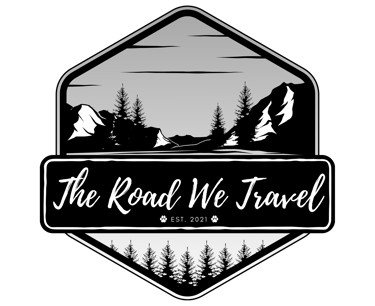Working a Nine-to-Five as a Full-Time RVer
Disclosure: This post may contain affiliate links. As an Amazon Associate I earn from qualifying purchases.
The COVID-19 pandemic revolutionized the way businesses approached remote work, prompting individuals worldwide to question the possibility of working remotely on a permanent basis. Like many others, I found myself contemplating the idea of a remote work lifestyle. With the flexibility provided by the newfound work-from-home culture, my wife and I seized the opportunity to explore this alternative way of living.
The backdrop to our decision was set in March 2020 when the world came to a halt. Faced with the challenge of maintaining productivity and workforce retention, companies scrambled to adopt remote work strategies. Fortunately, my wife and I were in the process of closing on a new home at the onset of the pandemic, which coincided with my job search. This fortuitous timing opened up a world of possibilities for us, as we realized we could now live and work from anywhere. As the pandemic stretched on, we decided to purchase an RV, allowing us to embark on an adventure while adhering to social distancing guidelines.
To our surprise, many others had the same idea, and finding the right vehicle and RV proved to be quite a process. Nonetheless, after months of searching and evaluating various options, we finally acquired our new mode of transportation and a suitable RV to accompany it.
"Work Remote" Month
However, as the number of COVID cases began to decline and companies contemplated returning to the office, the question lingered: what about the "new normal" that everyone had been talking about? Hadn't the pandemic demonstrated that companies could function effectively with a remote workforce? My own company, for instance, adopted a hybrid model and even dedicated the entire month of July to remote work, emphasizing the importance of work-life balance. While some companies embraced the idea of a fully remote workforce, others, like mine, made decisions on a case-by-case basis.
Intrigued by the prospect of becoming full-time RVers while continuing to work for a company, my family and I embarked on a month-long experiment during the designated Work Remote Month. I couldn't find many resources documenting the experience of working a traditional 9-to-5 job remotely, so I approached this adventure with curiosity and a touch of skepticism.
Data Connectivity
To ensure a seamless work experience, my wife meticulously planned our destinations, considering factors like connectivity and campsite suitability. We also invested in a Starlink for RVs system to bolster our data connectivity, which complemented our existing T-Mobile MiFi hotspot and a 4G LTE Modem with MIMO antennas connected to a Wi-Fi router. With these backup options in place, we felt confident that we could tackle any connectivity challenges that arose.
Dedicated Workspace
Creating a dedicated workspace was crucial for me, considering the number of meetings I had to attend. I estimated that only about 15-20% of my work time was spent on actual tasks, highlighting the importance of having a space conducive to communication and focus. Given our family's circumstances, I converted the bedroom of our RV into a makeshift office, drawing from my previous experience of working from the camper. My setup included a 43" 4K television serving as my single monitor, a laptop stand, a raised laptop desk, a mouse and keyboard, a power strip, a bar stool for flexibility, and an anti-fatigue mat to combat the strains of standing for extended periods. Although this setup involved compromises, not all RVers would face the same constraints, depending on their available space and layout.
Conclusion
Nevertheless, I discovered that I could strike a work-life balance more effectively than ever before. I maintained my productivity and was able to fulfill my work responsibilities while enjoying the perks of remote work. The greatest advantage was that my family could fully enjoy their summer vacation without any constraints imposed by my work schedule. While I diligently worked from the RV, my wife took our children on exciting adventures, whether it was hiking, visiting the pool, or exploring museums. Once I logged off for the day, I could join them in their activities, start a campfire, or simply relax and unwind.
To conclude, as with any new endeavor, there is room for improvement. I will continue to refine my setup to enhance comfort and efficiency. The most significant impact of this experience was the data connectivity that Starlink provided, enabling my family and me to seize opportunities we wouldn't have had otherwise. The last two weeks of July have us nestled in the heart of the North Carolina mountains, with zero cell service but an expansive sky above us. Would I recommend this lifestyle to everyone? No, it requires significant compromises, and the support of both your company and family is essential for a successful remote work experience. However, if you have a solid plan in place and the necessary support, I encourage you to embrace the remote work lifestyle and embark on your own adventure.
